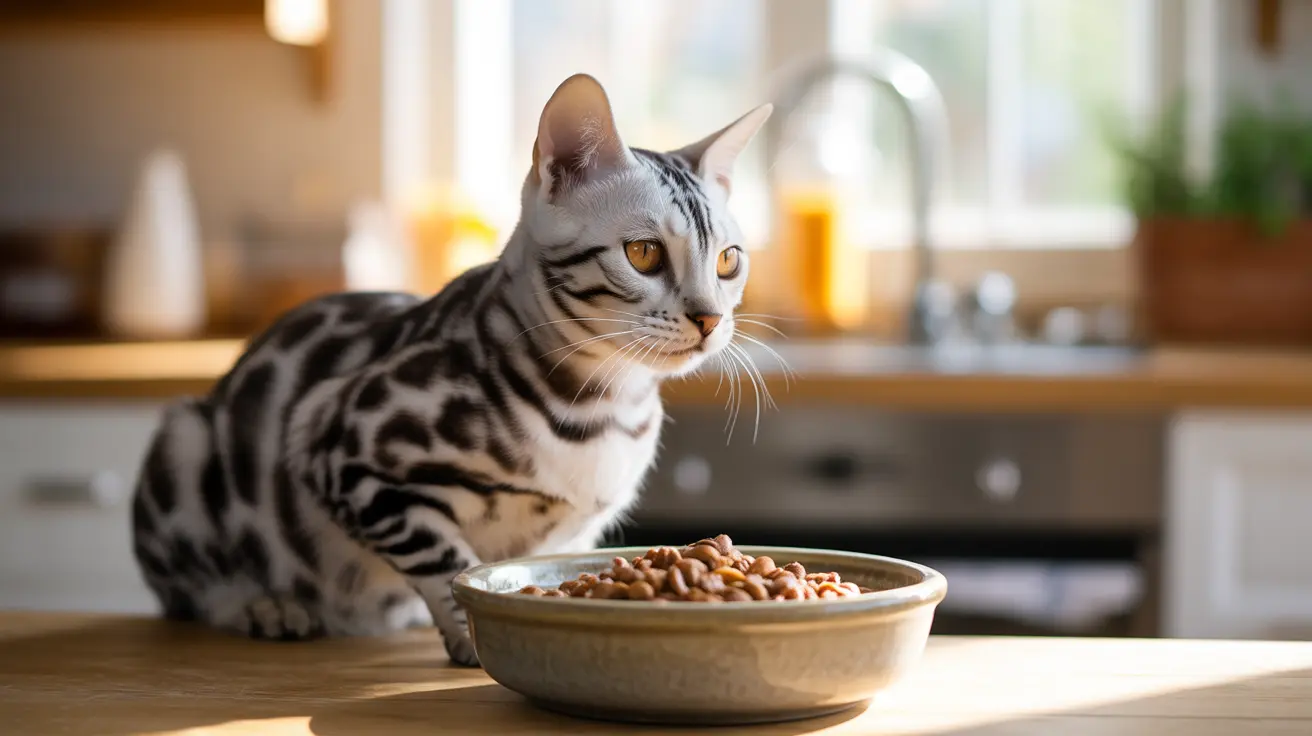What Is Freeze-Dried Cat Food?
Freeze-dried cat food is created through a sophisticated preservation process called sublimation, where moisture is removed from raw ingredients at extremely low temperatures. This method maintains the nutritional integrity of the original ingredients while creating a shelf-stable product that's lightweight and easy to store.
Unlike traditional kibble or canned food, freeze-dried options typically contain minimal processing and fewer additives, preserving the natural flavor and nutrient content of the original ingredients.
The Nutritional Benefits of Freeze-Dried Cat Food
Freeze-dried cat food offers several significant nutritional advantages that align with your cat's natural dietary needs:
High-Quality Protein Content
These foods typically contain concentrated animal protein sources, essential for cats as obligate carnivores. The protein preservation during the freeze-drying process ensures your cat receives the amino acids they need for muscle maintenance and overall health.
Minimal Processing
The low-temperature freeze-drying process preserves vital nutrients, enzymes, and vitamins that might otherwise be destroyed during traditional food processing methods. This means your cat gets more of the natural nutrition from the original ingredients.
Practical Advantages of Freeze-Dried Cat Food
Extended Shelf Life
The removal of moisture during the freeze-drying process results in a product that can be stored for extended periods without refrigeration, making it convenient for pet owners who buy in bulk or travel frequently.
Feeding Flexibility
Freeze-dried food can be served as a complete meal, used as a topper for regular food, or given as high-value treats. This versatility makes it easier to incorporate into your cat's existing diet routine.
Important Considerations Before Switching
Proper Rehydration Is Critical
Most freeze-dried foods need to be rehydrated before serving. This step is crucial to prevent dehydration in your cat and ensure proper digestion. Always follow the manufacturer's instructions for rehydration ratios.
Cost Considerations
While freeze-dried cat food typically costs more than conventional options, many pet owners find the nutritional benefits and convenience justify the higher price point.
Frequently Asked Questions
Is freeze-dried cat food nutritionally complete for a cat's long-term diet?
Yes, many freeze-dried cat foods are formulated to be nutritionally complete and balanced for long-term feeding, provided they meet AAFCO standards. However, always check the label to confirm the product is intended for complete nutrition rather than supplemental feeding.
What are the benefits and drawbacks of feeding freeze-dried cat food compared to traditional kibble or canned food?
Benefits include higher protein content, minimal processing, better nutrient preservation, and convenience. Drawbacks include higher cost, the need for rehydration, and potentially longer preparation time compared to ready-to-serve options.
How do I transition my cat from traditional food to a freeze-dried diet safely?
Gradually introduce freeze-dried food over 7-10 days by mixing increasing amounts with their current food. Start with 25% freeze-dried and 75% current food, slowly adjusting the ratio until reaching 100% freeze-dried food.
Can freeze-dried cat food help manage my cat's weight or improve their digestive health?
Yes, freeze-dried foods typically contain high-quality proteins and fewer fillers, which can support healthy weight management. Many also include probiotics and natural enzymes that may improve digestive health.
What are the best practices for handling and storing freeze-dried cat food to prevent contamination?
Store unopened packages in a cool, dry place. Once opened, keep in an airtight container away from moisture. Always use clean, dry utensils for handling, and dispose of any rehydrated food that hasn't been eaten within 30 minutes.
Conclusion
Freeze-dried cat food can be an excellent choice for cats, offering high-quality nutrition with the convenience of shelf-stable storage. While it requires some additional preparation and comes at a higher cost, the benefits of minimal processing and superior nutrient preservation make it a worthwhile consideration for many pet owners.
Before making the switch, consult with your veterinarian to ensure freeze-dried food is appropriate for your cat's specific health needs and dietary requirements.






